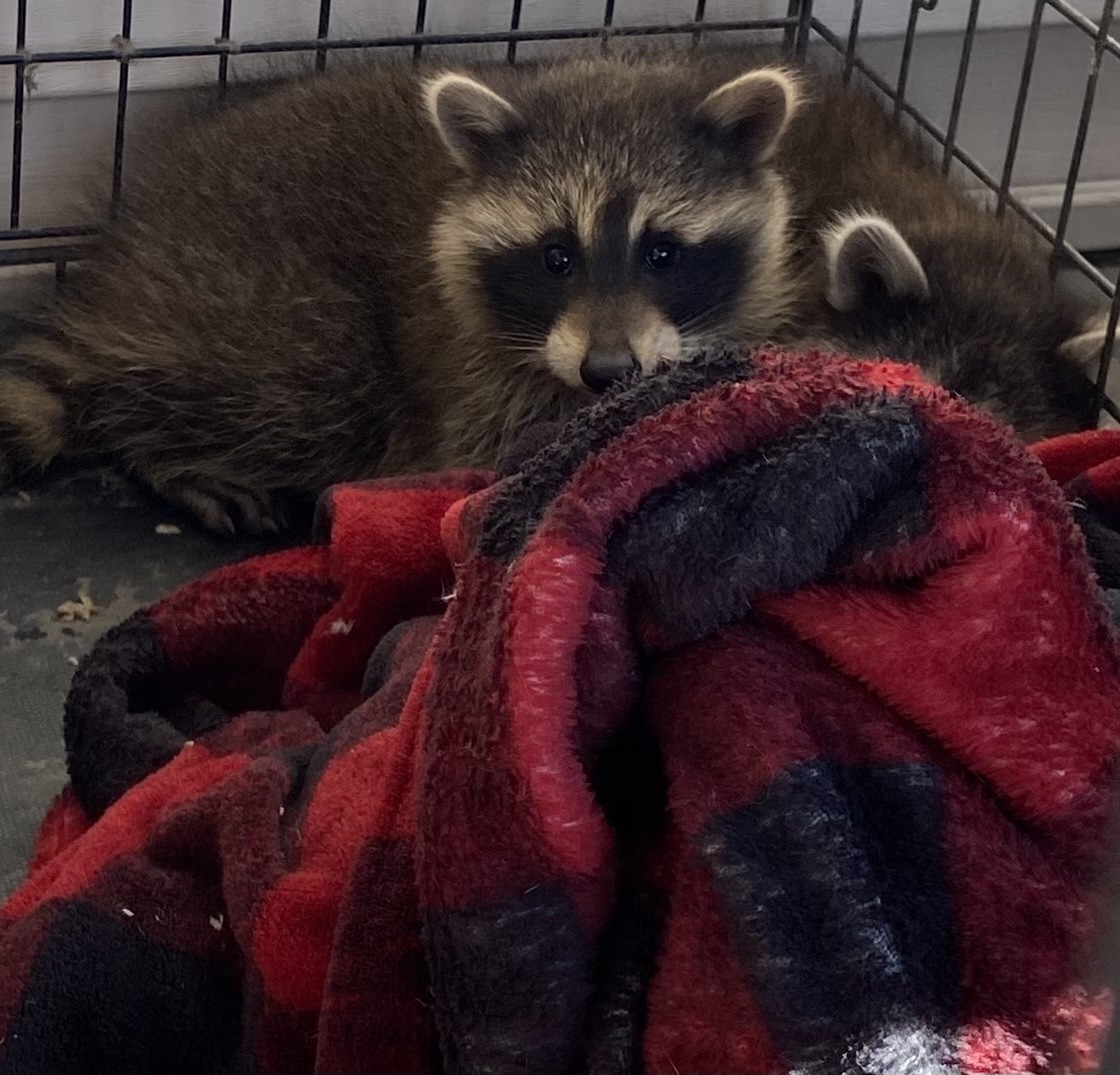Raccoons are special in NB, Canada in that they are heavily restricted – more so than other rabies vector species. It’s hard to say why that is exactly. My instinct tells me it’s probably due to baylisascaris procyonis aka raccoon roundworm.
This parasitic worm can be transmitted to humans, and while present in other animal species, its more prominent in raccoons. The average adult raccoon has about a 70% chance of being infected, and the odds increase to 90% in kits. Yikes! What does this mean for the raccoon though? Not much, no worries. Infected raccoons show little to no signs of distress: it’s more harmful to humans than to raccoons.
Luckily, it’s pretty rare that humans get infected despite so many raccoons being around. Most people keep a healthy distance from these animals and their feces. If you are in close contact with raccoons though, your chances increase, so it’s very important to take precautions.
Enough about worms though, what is happening with the raccoons?
Our provincial system is designed to balance many factors when deciding what to do on a case-by-case basis, including but not limited to conservation needs, the best interest of the animal, and appeasing the public’s threshold of spending tax dollars. Due to this, most of the time in the case of raccoons, they will dispatch the sick/injured and refer you to a Nuisance Wildlife Control Operator for the ones causing problems on private property.
Nuisance Wildlife Control Operators (NWCO) are bound by the Nuisance Wildlife Control Regulation, which is a part of the Fish and Wildlife Act. This regulation requires those with a NWCO license to dispatch all rabies vector species. This is why most people believe it’s illegal to relocate raccoons, but it’s only illegal for those with this license.
Other options are for landowners to live trap the animal themselves, or allow a licensed trapper to do so on their behalf as long as they are NOT receiving payment. It is important to have a relocation plan, a nuisance prevention plan, and check the laws in your area before setting a live trap yourself. This does not allow anyone to house raccoons on private property though, so rehabilitations can be very complex, and trapping is not usually required for you to help a raccoon on your property.
There is one wildlife rehabilitation center in all of New Brunswick – the Atlantic Wildlife Institute. They are restricted from housing raccoons at their facility unfortunately.
Times have been changing and the public’s mindset with it, so this gap in the system to help raccoons has created a situation where wildlife lovers have been taking it upon themselves to house raccoons and rehabilitate them at home. This increases the risk of diseases spreading to humans, and the raccoons not receiving proper care themselves, suffering unnecessarily.
This is what led me to launching my FREE Wildlife Removal program, as well as offering non-profit assistance to sick, injured, and orphaned wildlife. Feel free to reach out any time!

Leave a Reply